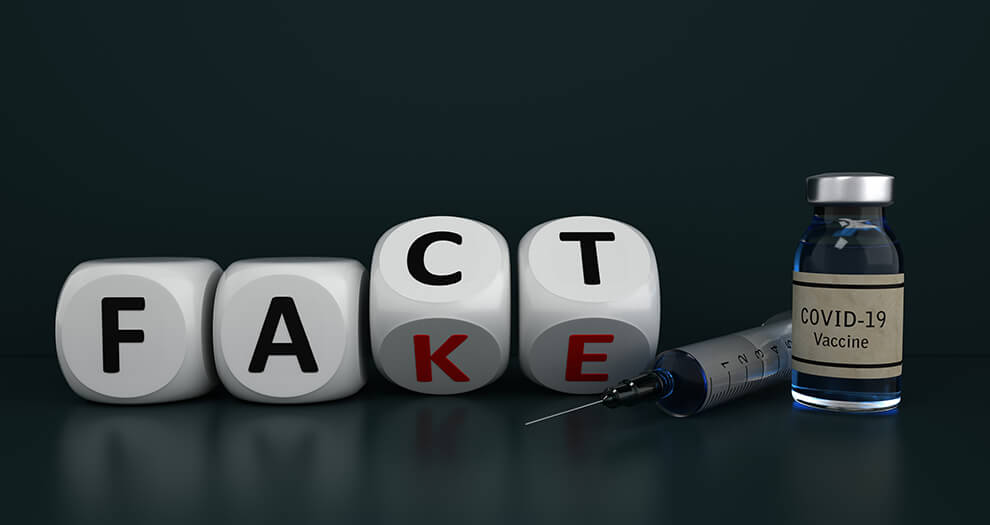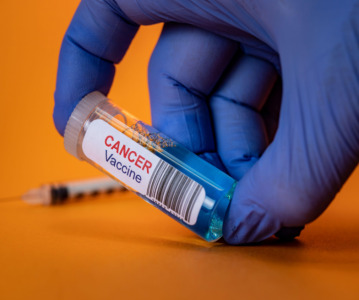Pharma should track online vaccine conversations to gain consumer insights and fight misinformation, says Talkwalker study

Online analysis finds vaccine misinformation continues to thrive despite recent approvals and inoculation programmes
Pharmaceutical companies need to keep better track of conversations from social media, news sites, blogs and forums to gain valuable insights on consumers to manage reputational risk from misinformation around COVID-19 vaccination, according to a recent report from social media analytics firm Talkwalker.
The study Racing for a vaccine: COVID-19 and the evolution of pharma is the result of analysis of millions of online conversations regarding the different COVID-19 vaccines and the overall idea of vaccination as a solution to the current pandemic.
“In the midst of a pandemic and a race for vaccines, competitive benchmarking becomes crucial for a changing industry,” the study said. “Brands need to not only analyze themselves but also keep an eye on competitive conversations, to learn and adapt to come out successful.”
Talkwalker used data visualisation to compare industry conversations at the beginning of the pandemic with more recent topics of discussion. While in the early stages, people were mainly concerned with PPE and testing equipment availability, by the end of the year, focus had shifted to vaccines, the report found.
“The public largely perceived the vaccine as the ultimate solution to the pandemic, as well as a way for society to go back to some sort of normalcy,” the report said.
Negative sentiment outweighs positive in 2020
Of most concern to the pharma industry is the report’s findings that negative sentiment towards vaccines was more prevalent than positive throughout 2020.
Looking at hashtags between March and April 2020, around terms like “Coronavirus is a hoax”, and “scamdemic” Talkwalker found many conspiracy theories around COVID-19.
“Some of the most renowned theories include that the virus was created by 5G technology, that Bill Gates was to blame, or even that COVID-19 was a biological weapon. As for those who believed the virus was fake, they created a movement to share videos of less-than-crowded hospitals with the hashtag FilmYourHospital,” the report said.
The study also found that even when governments started to approve vaccines and inoculation of populations began, misinformation around vaccines continued to grow, causing some companies such as Facebook to take measures to fight false claims.
In terms of positive vaccine sentiment, Pfizer and BioNTech emerged clear winners with 40% of the share of voice in the fourth quarter of 2020, largely thanks to their first mover advantage in the vaccine COVID-19 vaccine development race, according to the Talkwalker analysis.
However, the report found that while Pfizer/BioNTech may have had the first mover advantage in terms of mentions around first vaccinations, “players like AstraZeneca and Moderna have the opportunity to be better prepared by observing the competition. Competitive analysis could prove to be beneficial in the long run, with the reputation of big players being on the line, as they each hope to have the most effective vaccine.”
Vaccine popularity geographical variation
The analysis found that vaccine popularity varied greatly depending on geographical location, with the vast majority of discussions in English focussing on US and European vaccines rather than those being developed in Russia (Sputnik) and China (Sinovac).
The report also highlighted the importance of major logistics companies to successful vaccine distribution, particularly as most vaccines must be stored at sub-zero temperatures.
“It would be wise for pharmaceutical companies to track the conversations not only about themselves, but also about their partners who are crucial for the successful implementation of vaccines. With uncertainty looming around the industry, social intelligence keeps companies informed,” the report concluded.
Related News
-
News Women in Pharma: Hiring Across the Gender Divide
In our monthly series, we interview women from across the pharmaceutical industry and supply chain to discuss the importance of gender diversity in healthcare, the workplace, and beyond. -
Sponsored Content Ashwagandha and Herbal Medicines: Pharma’s Next Big Opportunity
Herbal medicines and nutraceuticals have seen a surge in interest since the onset of the COVID-19 pandemic. Driven by patient interest in prioritising personalised and integrative medicines, the herbal ingredients industry is now faced with concerns pe... -
News Identifying Alzheimer’s Disease biomarker proteins with whole blood tests
A University of Manchester spin-out pharmaceutical company, PharmaKure, has reported successful study results for the quantification of Alzheimer’s Disease biomarker proteins with a whole blood test. -
News Bill & Melinda Gates Foundation to boost mRNA vaccine initiatives in Africa with USD $40m
To address vaccine inequality and accessibility issues, the Bill & Melinda Gates Foundation aims to deliver USD $40m to various biotech companies and vaccine manufacturers in support of mRNA vaccine development. -
News Updated – Changing abortion pill access according to the US FDA and Supreme Court
After the approval of the medical abortion pill, mifepristone, by the US FDA, states across the USA approach the distribution of the pill differently, some ruling against allowing access to the drug. -
News Revolutionising cancer treatment with mRNA-based therapeutics
Global market for mRNA-based oncology therapeutics expected to reach USD $2 billion by 2029, with promising results for the combination of mRNA candidates with immune checkpoint inhibitors to treat solid tumours. -
News Breaking Barriers: Innovations in Oral Solid Dose Form Bioavailability
The effectiveness of a medication often hinges on its bioavailability – the rate and extent at which the active ingredient is absorbed into the bloodstream. When it comes to oral solid dose forms, such as tablets and capsules, the challenge lies ... -
News Choosing the Right CDMO Partner: A Comprehensive Guide
Finding the right partner for the development and manufacturing of your pharmaceutical or biopharmaceutical products is paramount. This is where Contract Development and Manufacturing Organizations (CDMOs) step in, offering their expertise and infrastr...
Position your company at the heart of the global Pharma industry with a CPHI Online membership
-
Your products and solutions visible to thousands of visitors within the largest Pharma marketplace
-
Generate high-quality, engaged leads for your business, all year round
-
Promote your business as the industry’s thought-leader by hosting your reports, brochures and videos within your profile
-
Your company’s profile boosted at all participating CPHI events
-
An easy-to-use platform with a detailed dashboard showing your leads and performance

.png)





